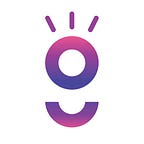Why Your Kid Should Learn Coding Even If They Are Not Interested In STEM
Kids Coding classes are becoming a rage nowadays. Is it a good idea to follow this trend even if your child is not particularly interested in coding or other STEM subjects? We say yes! Read on to know why.
Becoming ready for the future
The main reason why coding is an essential skill to have for every kid is because children need to keep up with the changing times. The world is transforming at an exponential rate. We are replacing corded phone with smart phones, driving our cars with self-driving cars and so on. Most importantly, machines are taking over many of the jobs that once belonged to humans. According to a recent McKinsey report, more than 65% of the jobs of the future do not exist yet. Therefore, it is becoming increasingly important for the younger generations to up-skill themselves, such that they can keep up with the tech-forward future.
The following are some additional reasons why coding is a great skill to have in your arsenal:
Gaining relevant skills
In 2016, the World Economic Forum released a Report, which listed the top “21st century skills”. According to this report, Complex Problem Solving, Critical Thinking and Creativity are the top 3 most valuable skills that we need to imbibe in children to give them a successful future ahead. Coding by its very process helps exercise all these skills.
Enhancing school performance
Writing programs requires the practice of various mathematical skills such as Linear Algebra, Boolean Algebra, Calculus, Graph Theory, etc. Therefore learning to code, automatically helps enhance math skills that will sooner or later be introduced during the school’s mathematics lectures. Therefore, if someone is afraid of mathematics, coding can actually be a really fun and engaging way of becoming comfortable with learning it. Additionally, programming is a memory-intensive skill that demands attentiveness and the ability to handle large amounts of information at a time. Memory is also an important skill for school-goers. Coding courses for kids can help students to develop their memory function from an early age.
Self-Empowerment
Programming is a very empowering tool, as it allows a child not only to develop cognitive skills (as discussed above), but it also gives students creative and innovative liberty, as coding allows us to build apps, games, robots, and much more. The process of creating something from genesis to revelation, so to speak, is a very empowering experience for anyone. Coding lets children explore their power to create something wonderful, impactful and dynamic on their own.
Professional boost
Coding opens children up to a wide spectrum of future career choices. Web development, database administrator, business intelligence analyst, computer programming, and software quality assurance, are just some of the career options than a coder can explore. Coding is also a very useful skill for entrepreneurs, as it helps them to understand and resolve technological business problems without too much external reliance.
So now that you have understood why you must teach coding to your kids, lets tlak about how to make it fun for a child who may not be naturally drawn to it. Here are some tips:
1. Curate the learning using the fun bits
Unlike what people might think, coding is actually a highly creative activity where you get to design fun stuff like mobile games, apps and websites. You also get the chance to innovate in exciting new technology spheres, like- Artificial Intelligence, 3D Printing, Robotics, Virtual and Augmented Reality, amongst others. So don’t go for a regular blanding programming course, go for courses where they teach coding while having children to work on exciting new technologies.
2. STEM Toys
There are actually toys to help kids have a little extra fun while learning coding. Most of these toys are mechanical and can be operated or “animated” when the child applies the correct code. Dash Robot, Lego Mindstorms and Botley Coding Robot are some examples of coding toys.
3. Preparatory Games
Coding is essentially applying certain cognitive skills into action. These skills mainly include- Problem Solving, Logical Thinking, Memorization and Math Concepts. Therefore, practicing these skills can actually directly reflect in the child’s coding abilities. One can play fun games and puzzles that improve these skills, for example- solving the rubik’s cube, playing matching games, playingchess, solving sudoku, etc.
4. Coding apps and games
There are dozens and dozens of exciting apps easily available online for learning to code in a fun way. Download an exciting coding app or game such as Tynker, Kodable, Lightbot, mBlock, and quickly and easily grasp basic programming concepts while having fun.
5. Choose a fun, visual programming language
Some languages are more interactive than others. The best example for a fun programming language is Scratch. Scratch is designed specifically for teaching coding to young kids. It is very visual in nature, with colourful prompts and a block-based format.
6. Participate in Bootcamps and Competitions
If you are already a little familiar with the basics of coding, then start immersing in online and offline coding bootcamps and competitions. This will allow you to find a community of other young folks interested in coding. Other cool features of bootcamps and competitions that make them an interesting platform for learning coding are- team-based learning, a healthy competitive spirit, fun and offbeat projects, and exciting prizes incentivizing us to put our best foot-forward!
We hope you found this blog fun-to-read and resourceful!
This blog was brought to you by BeSingular.
BeSingular offers online tech courses to kids, globally. It offers live and teacher-led sessions, where the child learns to apply their learning for creating real-life workable tech solutions. Tech Programmes offered at BeSingular include- Artificial Intelligence (AI), Robotics, Game Design, Internet of Things (IoT), 3D printing, App Development, and Augmented & Virtual Reality (AR/VR).
To learn more about us, visit www.besingular.com or mail us at contact@besingular.com.
